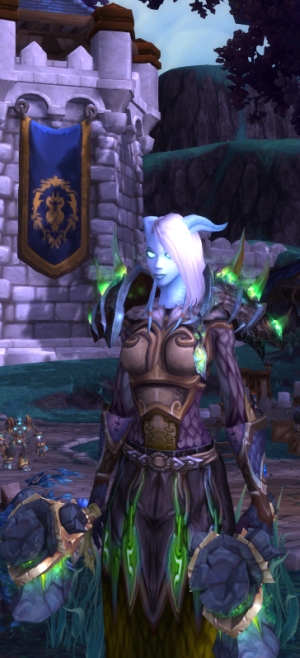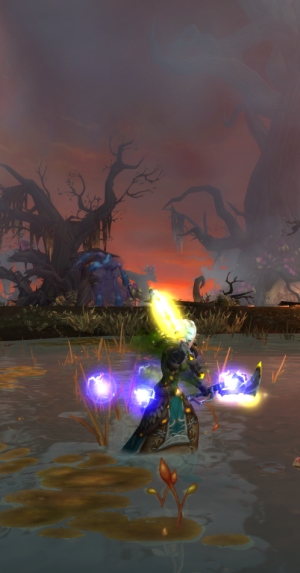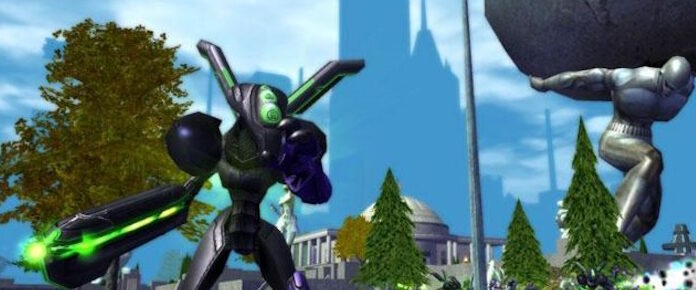
There’s a narrative that’s been making the rounds for a little while now among the World of Warcraft community, buoyed a lot by the fact that we’ve seen lots of evidence that Activision is taking a much more active hand in Blizzard’s business lately. This has become especially evident with Mike Morhaime’s full and final departure announced. Essentially, the narrative is that Activision (seen here terrorizing children in this 19th-century woodcut) has forced the good people at Blizzard to make games bad because evil corporate suits and profit uber alles.
It’s a nice narrative that is only slightly hamstrung by the fact that it’s pretty clearly wrong.
This isn’t to say that Activision’s increased influence on Blizzard hasn’t had a tangible presence on the studio; Diablo Immortal’s awful announcement, the whole “retiring cash shop items” debacle, and so forth are likely more about profit-driven oversight. But if you’re going to blame Activision for the modern state of WoW, you’re overlooking a lot of important information along the way.
 Let’s start with the biggest and most glaring issue for this theory: that it involves sort of forgetting an entire decade of history beforehand.
Let’s start with the biggest and most glaring issue for this theory: that it involves sort of forgetting an entire decade of history beforehand.
The Activision-Blizzard pairing became a thing in 2008. The current year is 2019. For purposes of perspective, WoW launched in November 2004, which means that it’s had nearly 11 years of operation under the shared banner. That means that these companies have been a shared entity for five of the game’s expansions from launch. This is not a new development.
That’s not to say that there’s never been any push-and-pull between the Blizzard side and the Activision side; while we don’t know all of the details, I’d be willing to bet money that this has been a longstanding issue between the two sides of the corporate structure. But putting forth the idea that Battle for Azeroth is the product of Activision influence requires neglecting that the fact that studio was just as much tied to Activision when Legion came out.
Blizzard has always held itself publicly aloof and apart from Activision as a whole, of course. This is what’s known as brand management. But that line has been crumbling for years; witness the inclusion of Call of Duty into the Battle.net launcher before Destiny 2 joined in, a steady process of cross-branding that in and of itself gets people accustomed to this presence. And these are also not new developments.
The fact of the matter is that even if you want to write off modern Blizzard as a result of Activision’s influence, this is not a case of a recent change. This is the old adage about a frog in a pot of boiling water; change the temperature slowly enough and the frog will never notice until it’s too late.
But all of this also relies on the idea that this is a recent change, rather than something that has been creeping up on the game reliably for several years. And basically everything you see people being upset about in the game’s current state of design and development has a straight throughline in the game from the past several years.
Don’t like a lack of any sort of consistent upgrades? That’s been a problem the game has had ever since Cataclysm started demolishing the badge system. Unhappy with the whole RNG aspect of Titanforging? That started gaining steam with Thunderforged items back in Mists of Pandaria and is itself an outgrowth of the desire for more “thrilling” randomness. (Because you never know what you’re going to get, you see.) Are you upset that the story seems to regularly discard existing characterizations and history for whatever villainous arc du jour the writers want? Bucko, this has been a problem at least since Cataclysm, and arguably it’s been an issue since Wrath of the Lich King.
And if you don’t like the idea of having combat that yanked out a bunch of existing abilities and skills without adding anything and with no regard for overall actual feel? Hey, look at that, it’s a philosophical change we’ve had in place since Mists of Pandaria. And, you know, arguably Cataclysm and its willingness to just gut fundamental systems without really understanding why they worked, but at this point we’re covering content that’s already been covered before.
Nothing here is a new problem. It’s easy to forget that this is part of a steady progression for the title and its development history, since everyone was over the moon about what was on display in Legion, but all of the same problems have been there in the philosophical underpinnings for a long while now – with or without Activision having an influence on the development team.

Even if you’re eager to believe that this is the fault of a corporate strategy to make more money, it doesn’t even make sense as one. “We’ll release an expansion that people will be unenthusiastic about from the premise alone, then we’ll get people less excited about it after they buy it and thus discourage them from subscribing! We’ll rake in less money from the same work!” Doesn’t really work, does it?
Yeah, there’s some short-term profit from box sales, and there are plenty of companies who love that short-term profit (Activision included), but the brain trust at Blizzard did not exactly spring out with a surprise when Battle for Azeroth proved wildly disappointing. It’s not like this was a crowd-pleasing premise, and the people who were actually excited about it usually spent a fair amount of time explaining why to the confusion of other fans. As you do.
 “So why does it matter, though?” you ask. “Who cares if it’s maybe not really Activision’s fault? Are you some Activision fan?”
“So why does it matter, though?” you ask. “Who cares if it’s maybe not really Activision’s fault? Are you some Activision fan?”
The general dislike I have of Activision isn’t really germane to this discussion; Activision as a company seems to have a profit focus that far exceeds a lot of the more demonized companies out there, but it’s been carefully managed (until relatively recently) as a brand to avoid the sort of loathing that seems to engender for other labels. It’s not really a matter of wanting to defend Activision. It’s a matter of wanting to make sure that the people blamed for decisions are the ones most likely to be making those decisions.
Let me circle back to Mike Morhaime: He was hardly my favorite person, but he did, at least, seem to genuinely make an effort to correct glaring mistakes when it came to business management. He made mistakes but owned them and backed off, and he wasn’t involved in the day-to-day game design choices. Blaming him for, say, the balance issues of Enhancement Shaman in patch 6.1 wouldn’t be fair to him.
Similarly, blaming the programmer who actually went in and adjusted numbers until Enhancement Shaman abilities were tuned as ordered isn’t fair. The people to look at are the people actually making the design decisions and whether or not they’re doing their jobs properly.
I don’t know exactly what the design leads have as a mandate from the top at this point; all I can judge are the results, which are… well, just plain bad. And that has nothing to do with Activision whatsoever. If you don’t like the job being done with the game, focus on the teams actually responsible for it.
 War never changes, but World of Warcraft does, with a decade of history and a huge footprint in the MMORPG industry. Join Eliot Lefebvre each week for a new installment of WoW Factor as he examines the enormous MMO, how it interacts with the larger world of online gaming, and what’s new in the worlds of Azeroth and Draenor.
War never changes, but World of Warcraft does, with a decade of history and a huge footprint in the MMORPG industry. Join Eliot Lefebvre each week for a new installment of WoW Factor as he examines the enormous MMO, how it interacts with the larger world of online gaming, and what’s new in the worlds of Azeroth and Draenor.













